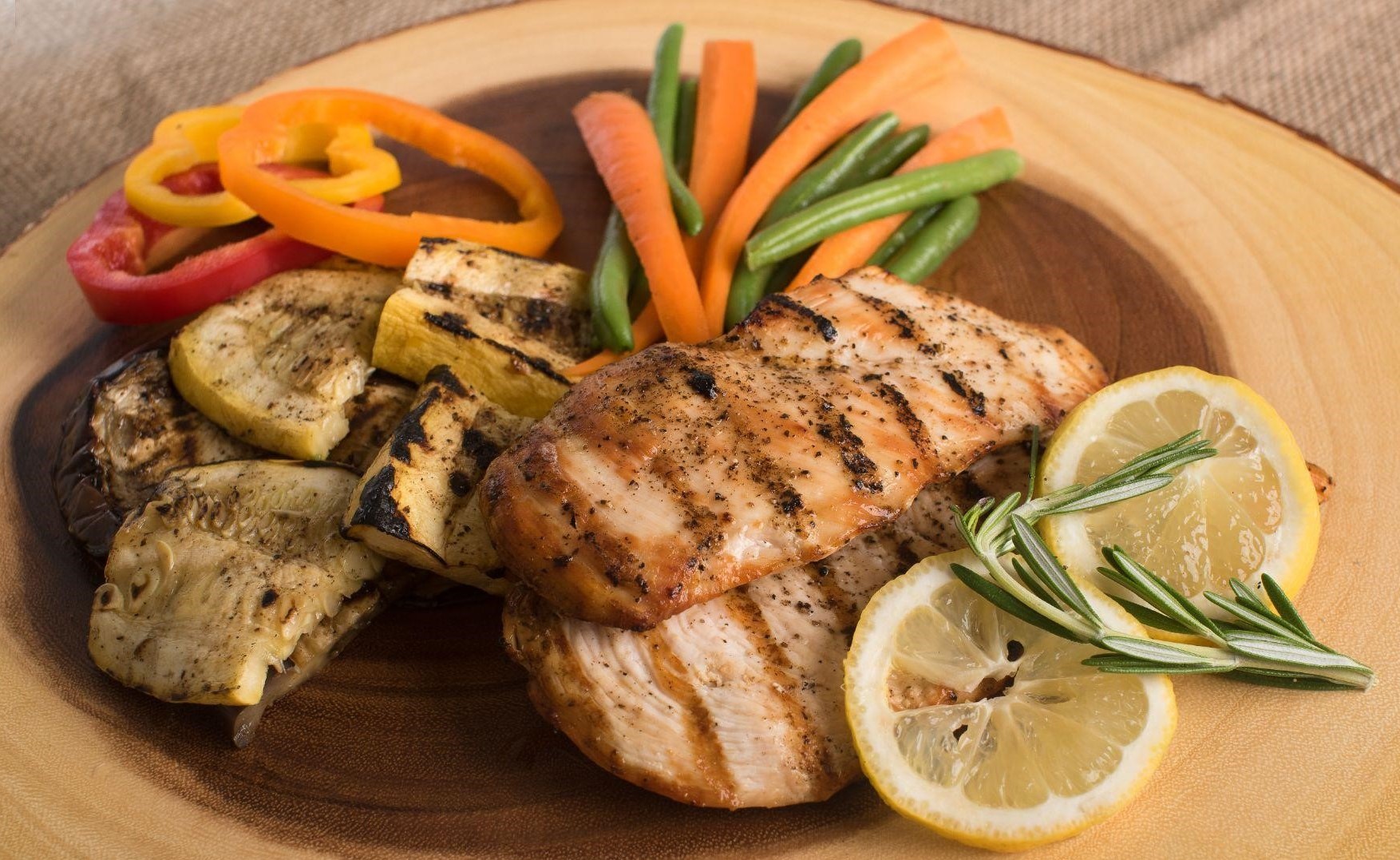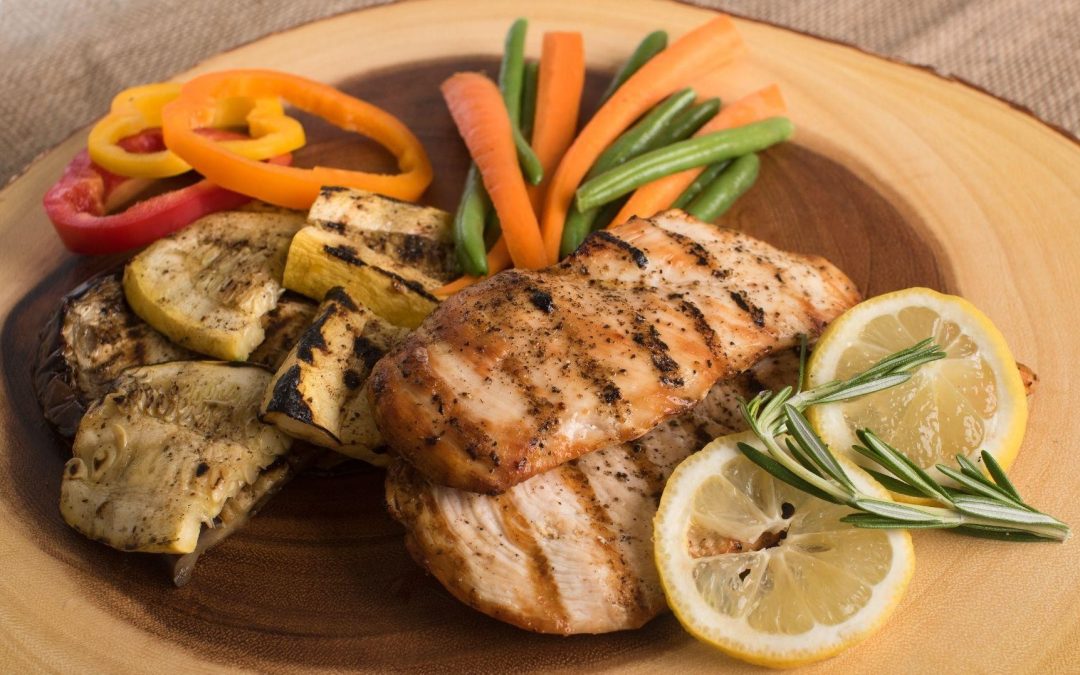Protein for Weight Loss – Understanding the Science

Hustleup.fit provides fitness coaching keeping ‘you’ at the center of the plan!
1. Protein makes you feel full for longer periods : When you eat a protein-rich meal and the food reaches the small intestine, the production of hormones which make you feel full increases. Moreover, the level of ‘hunger hormone’ i.e. ghrelin reduces. Thus, our body gets the signals to stop eating and we keep feeling full for hours after eating high-protein food.
This feeling of satiety also helps you control the urge to eat snacks in between meals.
2. It’s hard to store protein as body fat : In case at certain times the energy consumption is higher than energy expenditure, the excess energy gets stored in the body as fats. However, all three macronutrients are processed through different biochemical processes. Protein gets stored as body fat with much lesser efficiency as compared to carbs and fats.
3. Thermic effect of food (TEF) : In simple words, when we eat food, the body burns calories to break down the food and absorb the nutrients. This is called the thermic effect of food (TEF). TEF is measured as percentage increase in energy expenditure over the basal metabolic rate (BMR).
The thermic effect of protein is highest as compared to carbs and fats. The processing of protein-rich foods by the body increases the calorie expenditure by ~15-30% as compared to carbs (~5-10%) and fats (~0-3%).
Additionally, protein intake along with resistance training helps in preserving lean body mass i.e. muscle mass. When you are trying to lose weight you have caloric restrictions. Protein helps you maintain muscle mass while adhering to caloric constraints. The presence of lean muscle mass in the body also helps in increasing the BMR.

If you are trying to lose weight, a daily protein intake of 1.2-1.6 grams per kg of your body weight will be sufficient to minimise the loss of muscle mass. For a person following resistance training and targeting fat loss should aim for protein intake of 1.8-2.2gm per kg of bodyweight.
● Limiting carbs and fats from your diet may lead to a lack of certain nutrients needed by your body. Hence, ensure the presence of fruits and vegetables as well in your diet.
● Your protein intake should be spread out evenly throughout the day, preferably in 3 to 6 meals.
● Factors like sleep and exercise should not be overlooked as they play a key role in maintaining a healthy weight.
Before making any major changes to your diet, it’s recommended to consult with your doctor or a fitness expert.
● Fish
● Prawns
● Soya Chunks
● Egg Whites
● Whey Protein
● Tofu
● Yogurt
● Cottage cheese
● Whole eggs
● Milk
However one should keep in mind the quality of the protein sources. While increasing your protein intake, include animal protein, plant-based protein, fruits and vegetables in your diet to have a balanced diet.
At Hustleup.fit we help you achieve your fitness goals with proper planning and progress tracking!






